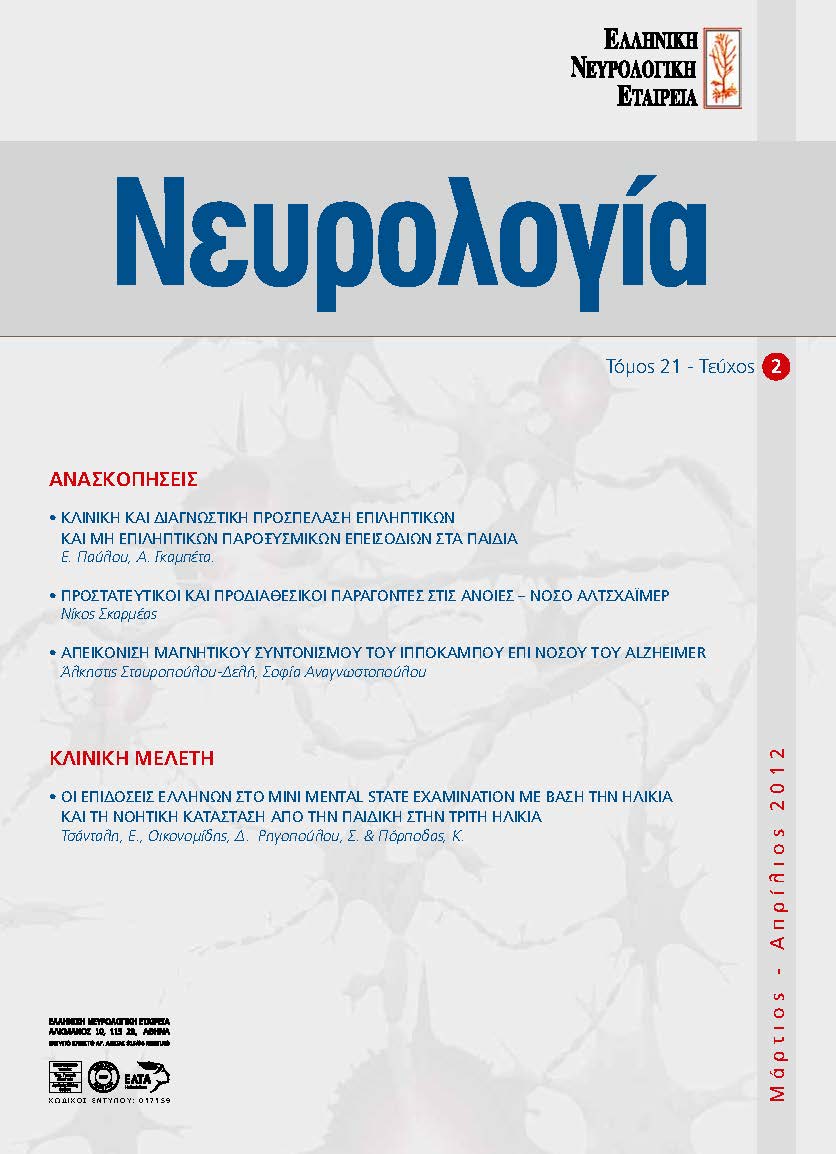Protective and risk factors in dementias – Alzheimer’s disease
Keywords:
dementia, Alzheimer’s disease, protective factors, risk factorsAbstract
The causes of the vast majority of Alzheimer’s disease (Ad) cases are not known. it seems that genetic factors play an important role. these factors include 3 genes that are transmitted in an autosomal dominant pattern with a probability of 50% from parents to children. however these deterministic genes relate to the rare “familial” form of the disease that represents less than 2-3% and starts at a very young age. Susceptibility genetic factors appear to play some, but lesser, role in the common “sporadic” form of the disease (97-98% of Ad patients). Simultaneously, non-genetic -environmental factors appear to influence the likelihood of developing the disease. these factors include the following: age, sex, down syndrome,, cardiovascular factors (diabetes, hypertension, dyslipidemia, obesity), smoking, trauma, depression, medications (hormones such as estrogens, anti-hypertensives, anti-dyslipidemic, anti-inflammatory, etc.), factors affecting the cognitive reserve (iQ, education, occupation, intellectual activities, social activities, physical exercise, etc.) and dietary factors. We briefly summarize the evidence relating to such factors. Whether they have an etiologic relation with dementia and Ad and whether their modification may result in disease prevention, remains to be demonstrated.


